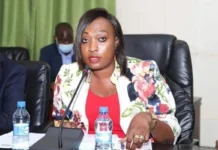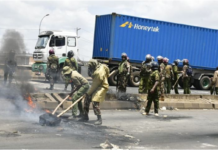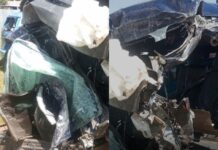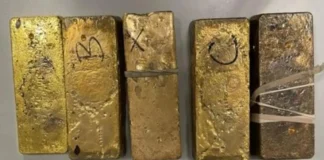Written By Lisa Murimi
Langata Cemetery in Nairobi has become a distressing site as wild animals mutilate human remains buried in shallow graves and thieves steal coffins.
Lawmakers have expressed concerns about the lack of action from City Hall and the Ministry of Health to address the issue.
“We bury our dead in shallow graves and expose them to be mutilated by wild animals. The African culture is to the extent that it respects the dead. It is unfortunate that when we expect our dead to rest, they do not, and instead, their bodies are mutilated by wild animals.” Rangwe MP Lilian Gogo said.
“It is a problem when we have the stench of our dead coming from the backyards of where we live,” she said, calling for the cessation of taking more bodies to the cemetery.
The overcrowding, caused by the cemetery being declared full in 1998 yet continuing to accept bodies, has led to bodies being buried in shallow graves and exhumed within months to accommodate more. This dire situation has caused distress for bereaved families and the surrounding community.
Langata MP Felix Odiwuor initiated a parliamentary debate, urging the Ministry of Health and the county government to assess health risks and find alternative burial sites.
“This situation has led to overcrowding and double-allocation of burial sites with bodies being buried in shallow graves leading to frequent uncovering by wild animals from the nearby National Park,” he disclosed. Despite attempts by City Hall to secure new locations, challenges persist, and even theft of coffins by thieves has occurred.
“If you are not careful, two things will happen. Hyenas will feast on dead bodies if coffins are not well done. You must be careful if you use a very good coffin at Langata Cemetery. The following day you may find your relative’s body outside because a thief snatched the coffin.” Tharaka MP George Murugara said.
The state of the cemetery has prompted calls for immediate government intervention to find a suitable alternative site for burials and prevent the desecration of the deceased and their resting places.



















